Filter by
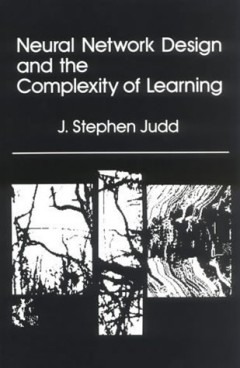
Neural network design and the complexity of learning
"A Bradford book.""Using the tools of complexity theory, Stephen Judd develops a formal description of associative learning in connectionist networks. He rigorously exposes the computational difficulties in training neural networks and explores how certain design principles will or will not make the problems easier. Judd looks beyond the scope of any one particular learning rule, at a level abo…
- Edition
- -
- ISBN/ISSN
- 0585359342
- Collation
- 1 online resource (150 pages) :illustrations.
- Series Title
- -
- Call Number
- -
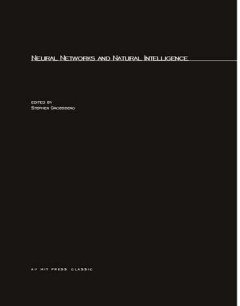
Neural networks and natural intelligence
"A Bradford book."Stephen Grossberg and his colleagues at Boston University's Center for Adaptive Systems are producing some of the most exciting research in the neural network approach to making computers "think." Packed with real-time computer simulations and rigorous demonstrations of these phenomena, this book includes results on vision, speech, cognitive information processing; adaptive pa…
- Edition
- -
- ISBN/ISSN
- 9780262315937
- Collation
- 1 online resource (xi, 637 pages) :illustrations
- Series Title
- -
- Call Number
- -
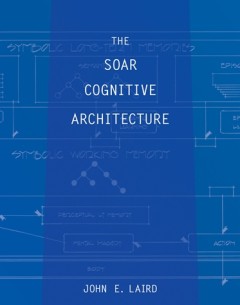
The Soar cognitive architecture / The Soar Cognitive Architecture
The definitive presentation of Soar, one AI's most enduring architectures, offering comprehensive descriptions of fundamental aspects and new components.
- Edition
- -
- ISBN/ISSN
- -
- Collation
- 1 online resource (xv, 374 pages) :
- Series Title
- -
- Call Number
- -
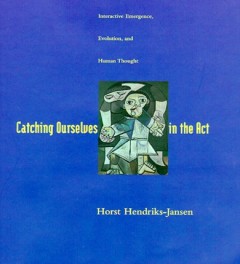
Catching Ourselves in the Act: Situated Activity, Interactive Emergence, Evol…
"A Bradford book."OCLC-licensed vendor bibliographic record. Catching Ourselves in the Act uses situated robotics, ethology, and developmental psychology to erect a new framework for explaining human behavior. Rejecting the cognitive science orthodoxy that formal task-descriptions and their implementation are fundamental to an explanation of mind, Horst Hendriks-Jansen argues for an alternative…
- Edition
- -
- ISBN/ISSN
- 9780262275262
- Collation
- 1 online resource (xii, 367 pages).
- Series Title
- -
- Call Number
- -

The mechanical mind in history / The Mechanical Mind in History
The idea of intelligent machines has become part of popular culture. Tracing the history of the actual science of machine intelligence reveals a rich network of cross-disciplinary contributions, and the origins of ideas now central to artifical intelligence, artificial life, cognitive science and neuroscience.
- Edition
- -
- ISBN/ISSN
- -
- Collation
- 1 online resource (458 pages)
- Series Title
- -
- Call Number
- -
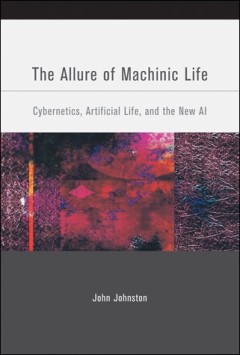
The allure of machinic life Cybernetics, Artificial Life, and the New AI
This account of the creation of new forms of life and intelligence in the sciences of cybernetics, artificial life and artificial intelligence analyses both their similarities and their differences in actualising life. The author draws on the work of scientists as well as work in contemporary philosophy and cultural theory.
- Edition
- -
- ISBN/ISSN
- -
- Collation
- 1 online resource (xiii, 461 pages) : illustrations
- Series Title
- -
- Call Number
- -

Knowledge in Action: Logical Foundations for Specifying and Implementing Dyna…
Modeling and implementing dynamical systems is a central problem in artificial intelligence, robotics, software agents, simulation, decision and control theory, and many other disciplines. In recent years, a new approach to representing such systems, grounded in mathematical logic, has been developed within the AI knowledge-representation community. This book presents a comprehensive treatment …
- Edition
- 1
- ISBN/ISSN
- 9780262282314
- Collation
- -
- Series Title
- -
- Call Number
- -

https://doi.org/10.7551/mitpress/3117.001.0001?locatt=mode:legacy;http://www.…
"A Bradford book."OCLC-licensed vendor bibliographic record.
- Edition
- -
- ISBN/ISSN
- 9780262287166
- Collation
- 1 online resource (x, 508 pages) :illustrations.
- Series Title
- -
- Call Number
- -
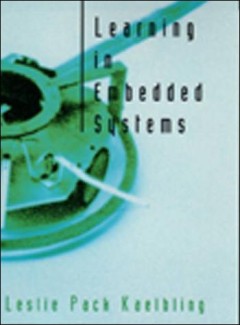
"Learning in Embedded Systems "
It is the first detailed exploration of the problem of learning action strategies in the context of designing embedded systems that adapt their behavior to a complex, changing environment; such systems include mobile robots, factory process controllers, and long-term software databases.Learning to perform complex action strategies is an important problem in the fields of artificial intelligence…
- Edition
- 1
- ISBN/ISSN
- 9780262288507
- Collation
- -
- Series Title
- -
- Call Number
- -
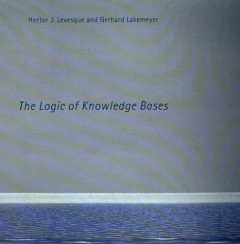
The logic of knowledge bases
"The idea of knowledge bases lies at the heart of symbolic, or "traditional," artificial intelligence. A knowledge-based system decides how to act by running formal reasoning procedures over a body of explicitly represented knowledge--a knowledge base. The system is not programmed for specific tasks; rather, it is told what it needs to know and expected to infer the rest. This book is about the…
- Edition
- 1
- ISBN/ISSN
- 9780262278232
- Collation
- -
- Series Title
- -
- Call Number
- -
 Computer Science, Information & General Works
Computer Science, Information & General Works  Philosophy & Psychology
Philosophy & Psychology  Religion
Religion  Social Sciences
Social Sciences  Language
Language  Pure Science
Pure Science  Applied Sciences
Applied Sciences  Art & Recreation
Art & Recreation  Literature
Literature  History & Geography
History & Geography